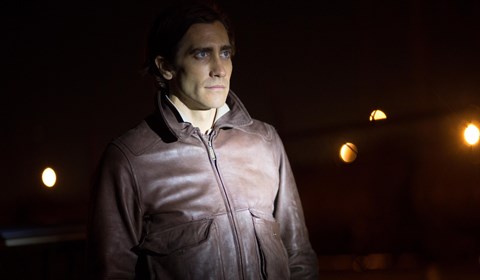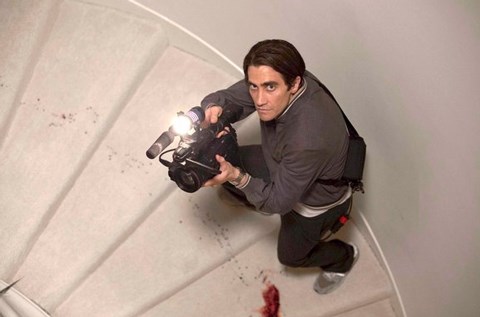
Top stories





Energy & MiningGlencore's Astron Energy gears up with new tanker amidst Sars dispute
Wendell Roelf 8 hours

More news

















Logistics & Transport
Uganda plans new rail link to Tanzania for mineral export boost










Every night, while the city sleeps, motley crews armed with fast cars, expensive video cameras and blaring police radios prowl the sprawling Los Angeles basin in search of a story. 'Pinballing' from one police scene to the next, they are driven by a simple equation that converts crime and victims into dollars and cents. Nightcrawler will have you on the edge of your seats until the very last moment. It's one of those films that grabs you by the throat and never lets go!
For writer-director Dan Gilroy, the nocturnal subculture of maverick newshounds became the perfect world to launch lead character Lou Bloom. The embodiment of an alienated, younger generation, Lou faces a future in which internships and the minimum wage have replaced the promise of full-time work and careers. "What are the employment and advancement chances for Lou's generation when opportunities have vanished because of low-wage globalisation?" Gilroy wonders. "This is the environment Lou's character springs from. He lives in a world of growing economic disparity. Closed doors. Internships creating indentured servants. That's the employment reality for Lou and for millions."

Seizing the opportunity to capture a snapshot of this Los Angeles subculture, Gilroy began with several key character concepts. "Lou is someone who doesn't change and, instead, bends the world around him," the filmmaker says. "I saw it as a chance to create a character that holds a mirror up to society."
Lou's ascent in the realm of TV news is a classic American success story-with a dark twist. "He starts off searching for work and ends up being the owner of a growing business. It's a happy ending for our hero, but a nightmare finish for society." Gilroy says he wanted to "instil the awful knowledge that the real horror isn't Lou, it's the world that created him and rewards him".
Lou recites facts about the power of local television news and its appetite for fear-based crime stories. According to Gilroy, these facts are true. "Despite falling crime rates, local television news creates and perpetuates the myth of urban crime creeping into the suburbs. Local television stories are teased with warnings. Crimes are falsely connected into patterns, suggesting growing and dangerous threats. News is packaged into a product intended to sell advertising."

The fine line for Gilroy came in maintaining a connection between Lou and the audience by continually finding the humanity in the character. "Lou's bible is the downloaded corporate scripture of multinational companies, and he deeply believes," explains Gilroy. "Lou is always observant, soaking up things like a sponge and learning. These are relatable human qualities as is his fundamental quest to seek and climb. It creates empathy for his cause as he seeks a job and seeks a relationship. These qualities, combined with his loneliness, make Lou human."
Struck by the power of Gilroy's screenplay, Jake Gyllenhaal came on board as both star and producer of Nightcrawler. During their very first meeting, Gilroy and Gyllenhaal agreed to take a collaborative approach to the material. "It was always my intention to allow Jake the opportunity to really go to a place of intense exploration," says Gilroy. "He's such an extraordinary talent that I didn't want to stifle or impinge on his creative instincts."
Gyllenhaal, who delivers an astounding performance, describes Lou Bloom as a coyote. "He searches and scavenges for whatever he can find," the actor says. "He is hungry at all times and will destroy what he needs to if it stands in his path. He will succeed at any cost."
Lou's ascent in the world of nightcrawling is aided by Nina, with Rene Russo delivering an equally brilliant performance.
Gilroy draws a key parallel between Russo's character and Lou's. "Both come fully formed," he says. "There's no transition in Nina other than the fact that her job is more secure at the end than at the beginning. The journalistic lines Nina crosses with Lou become more extreme, but she's been crossing lines for years. By the end of the film, like Lou, she is rewarded for her choices."

In a TV news environment where appearance often trumps substance, Russo's Nina had to convey the look of a woman who began in front of the camera and was now hanging on to her management position by her fingernails. Costume designer Amy Westcott conceptualised a wardrobe that harkens back to Nina's prime, 20 years earlier, as an on-air personality.
Beneath the glamorous façade, Nina struggles to keep pace with a web-connected world where smartphones deliver infotainment around the clock. With hardly an iPhone in sight, Nina has become an endangered species on the verge of becoming an Old Media dinosaur. To compete, she stretches ethical boundaries to the breaking point and pushes Leo to bring her stomach-churning video. Nina's desperation comes through in her description of the station: "Think of our newscast as a screaming woman running down the street with her throat cut."
Nightcrawler marks Gilroy's first turn in the director's chair after watching other filmmakers bring his six previous screenplays to life on screen. "As a screenwriter on set, I've watched a lot of other directors work," says Gilroy. "You reach a point where you feel you're ready to try it yourself."
Gilroy is from a creative family that includes his Tony Award- and Pulitzer Prize-winning playwright father, Frank D Gilroy (The Subject Was Roses), and acclaimed film editor brother John Gilroy (Miracle, Michael Clayton, Salt, Warrior). Among his feature film-writing credits are The Fall, Two for the Money, Real Steel, and co-wrote of The Bourne Legacy with his writer/director brother Tony Gilroy.
To produce Nightcrawler, Gilroy recruited his brother Tony, whose own efforts as a writer-director include the Oscar-nominated Michael Clayton. "I was in a very advantageous place by having my brother Tony come on as the producer," says Gilroy. "Tony's experience and position allowed him to run interference on a lot of crucial, elemental aspects of what we did, or were allowed to do."
Dan singles out his other brother, editor John Gilroy, and director of photography Robert Elswit as key collaborators. "I was incredibly lucky to be able to work with them, Robert in production and John in post," says the director.
Dan and John are twin brothers who collaborate very closely. "It was just John and me in the cutting room," says Gilroy. "John has such a fine eye and command of the material. I'd hand him a complex sequence and what he came back with usually formed the basis for what's in the film."
Nightcrawler portrays Lou as part of a supply-and-demand system in which local news stations hype crime reportage to boost ratings. "It's the idea of selling fear to keep advertising rates up," says Gilroy. "Local TV news preys on people by instilling a pervasive feeling of peril." That said, Nightcrawler resists the temptation to point fingers. "We always tried to stay cinematically neutral," says Gilroy. "We never underline any moral judgment. The film will, hopefully, say different things to different people. The aim is for viewers to see some part of themselves in Lou and the world he moves through."
Read more about Nighcrawler and other new films opening this week at www.writingstudio.co.za.
